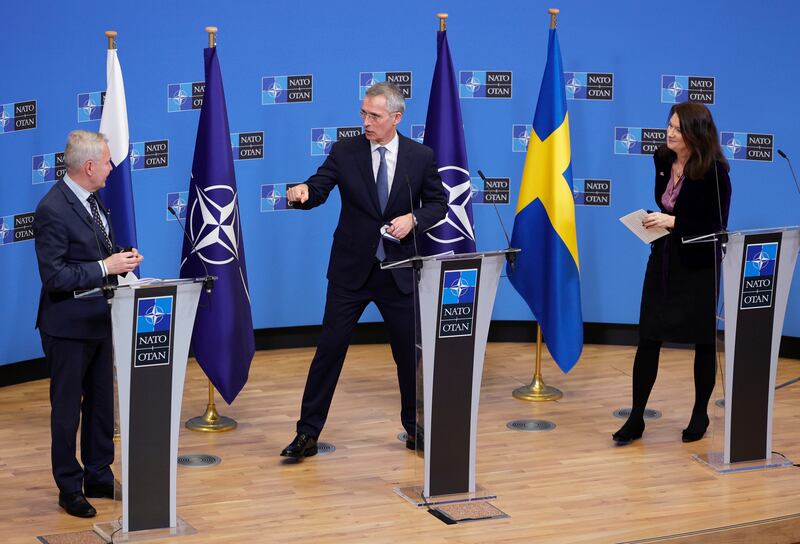Unity — among politicians in the United States and European allies — is more important now than ever, as the world faces the biggest threat to international peace so far in the 21st century.
That’s unfortunate, given how “unity” has become a punchline in the tasteless joke of modern political discourse. But the lack of it sends a dangerous signal.
Vladimir Putin’s threat to Ukraine is about more than just a regional dispute or a desire to bring two old Soviet-era states back together, although those issues cannot be ignored.
It has been brought to a fever pitch at this moment in history because Russia’s leader likely senses an opportunity based on perceived weaknesses in the West.
The United States is obsessed with the false claims of election fraud in 2020, with many people so blinded by hatred and distrust, either for liberals or conservatives, that they can’t see beyond their nation’s borders. Putin, himself, may have something to do with this through internet disinformation campaigns.
Meanwhile, President Joe Biden’s disastrous troop withdrawal from Afghanistan signaled weakness and strategic disarray. Some in Washington are drawing connections between this and the crisis at hand.
NATO, meanwhile, has shown its own signs of disunity, with Germany becoming increasingly dependent on cheap gas from Russia. Despite strong warnings to Russia from British Prime Minister Boris Johnson, Europe must do more to rally behind Ukraine. Writing recently for the Wilson Center, Mykhailo Minakov, the Kennan Institute’s senior adviser on Ukraine, made a strong argument that “Ukraine is more important for the security of Europe than Afghanistan.”
And yet the West seems caught in a straightjacket of its own internal affairs.
In the United States, members of Congress need to unite in a bipartisan effort to pass a bill sponsored by Sen. Bob Menendez, D-N.J., who is chair of the Senate Foreign Relations Committee.
Called the “Defending Ukraine Sovereignty Act of 2022,” the bill would impose sanctions both on the Russian banking sector and senior military and government officials, should an attack occur. It would sanction a variety of Russian business and industry concerns and punish transactions on Russian sovereign debt.
Perhaps most importantly, it would call on the Department of Defense and the State Department to provide military aid to Ukraine, and it would expand efforts to counter Russia’s internet disinformation campaigns.
The bill may not be perfect, but it’s up to members of both parties to work together to craft a version that would send a united message, and to do so quickly. Military aid, in particular, needs to arrive in a timely fashion. Americans may not be prepared to engage personally in the defense of Ukraine (although a NATO quick-response team, possibly reinforced with U.S. soldiers, is moving into place), but Putin is more likely to think twice if the West appears ready to make him pay for his actions.
The need for unity cannot be overstated. Writing in Foreign Affairs recently, retired National Security Council official Alexander Vindman and Lawfare Institute research associate Dominic Cruz Bustillos said, “Traditionally, there has been strong bipartisan support for Ukraine. But the Kremlin believes that a lack of U.S. internal cohesion will undermine Washington’s capacity for a strong response. Congress must not lend credence to that belief.
“The potency of Menendez’s bill comes not only from its substance but also in the signal it would send about overwhelming bipartisan support for Ukraine.”
We agree. Or, in the words of former British Prime Minister Margaret Thatcher, “This is no time to go wobbly.”

